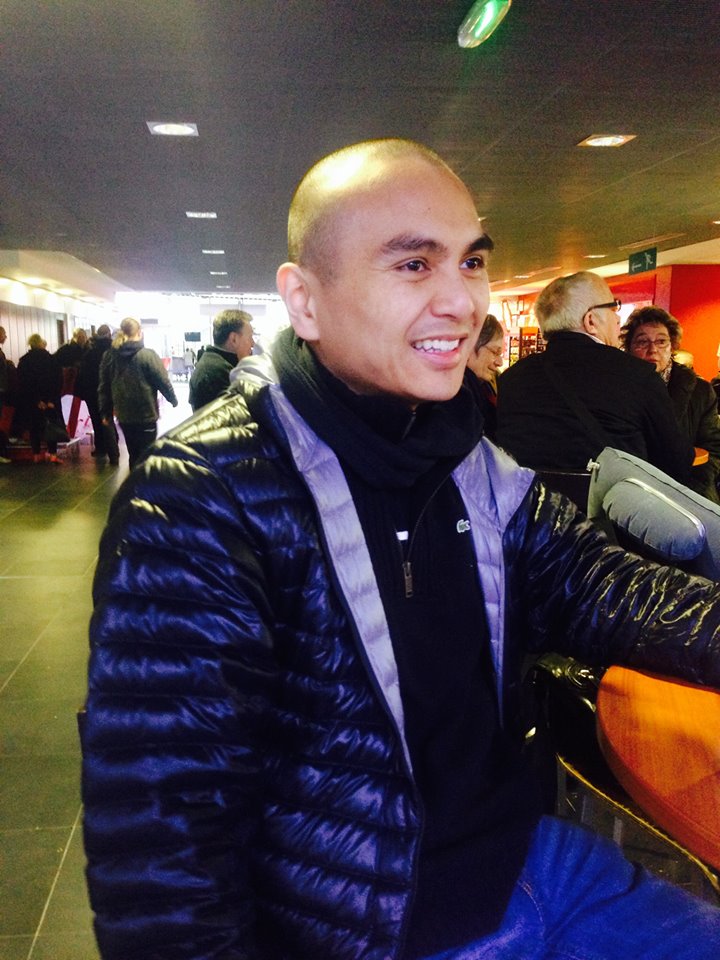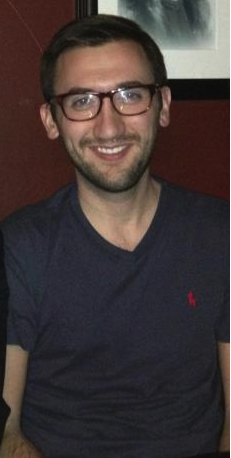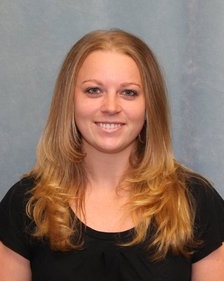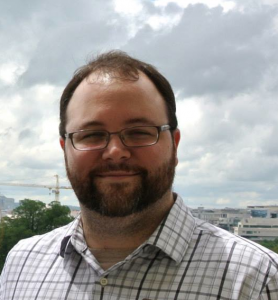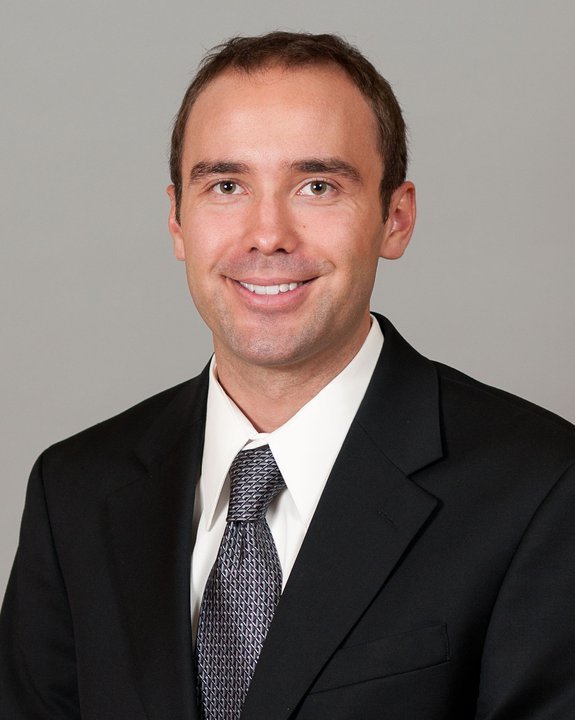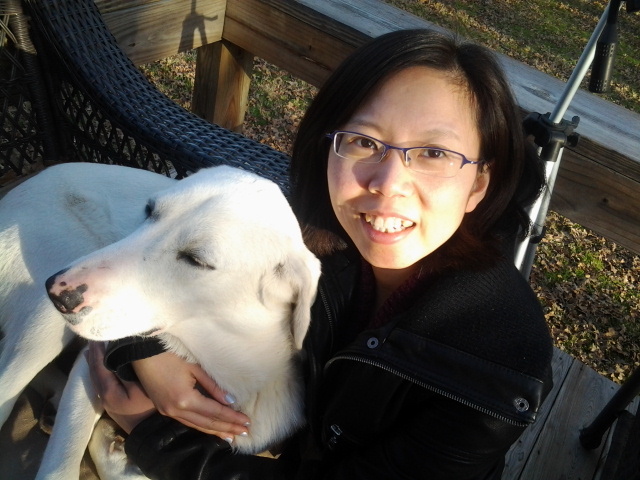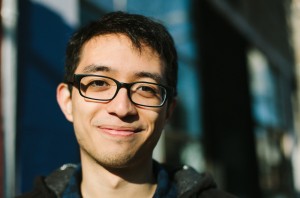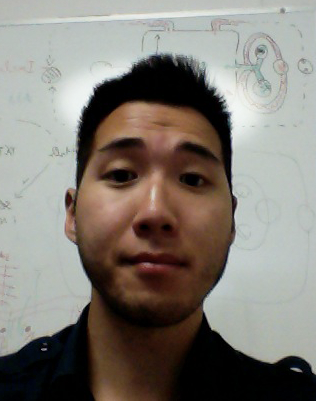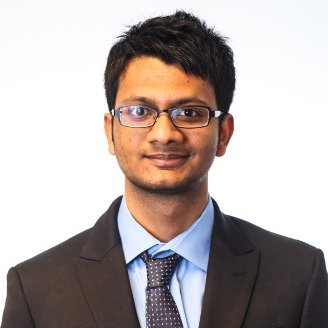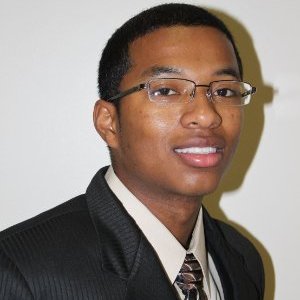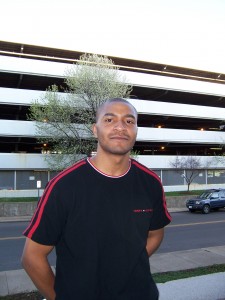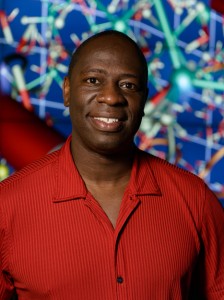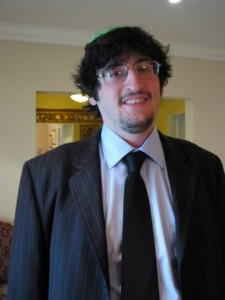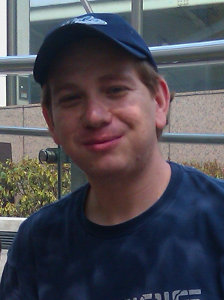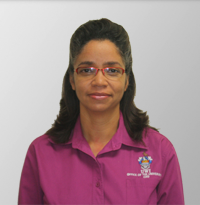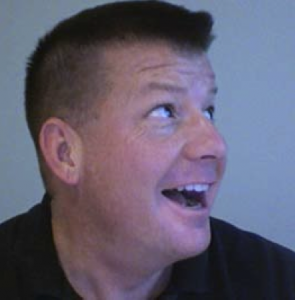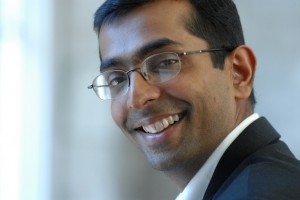OSDC PIRE Year 4 Researchers (2014)
Fellows
Meet this year’s selected research fellows.
Alexander Moreno
- Graduate student at Georgia Institute of Technology
- Field: Computer Science
- Host Institution: School of Informatics, University of Edinburgh, Scotland, UK
Alex is currently an MS student at Georgia Tech, where he studies machine learning. He works with Tucker Balch’s computational finance research group on memoization for financial computations. Previously, he worked as an iOS developer, and prior to that, as a professional poker player. He has a BA in Mathematics from the University of Chicago and is an avid classical pianist.
Nelson Auner
- Graduate student at the University of Chicago
- Field: Statistics
- Host: Imperial College, London
Nelson is finishing a Masters degree in Statistics at the University of Chicago. His current research focuses on large-scale text analysis and, in particular, using topic modelling to explain themes and predict metadata. For his PIRE project, Nelson is working with a research group focusing on the visualization and analysis of real-time social interaction data. By combining precise location data with individual background information, the group is developing tools to better understand how social interactions occur and producing novel and useful tools from this information.
Robert (Race) Clark III
- PhD student at the University of Oklahoma
- Field: Meteorology
- Host: Project Matsu in Namibia
Race is currently a PhD student at the University of Oklahoma, where he is studying meteorology. He works as a Graduate Research Assistant for the Cooperative Institute of Mesoscale Meteorological Studies and the National Severe Storms Laboratory. His PhD project is to determine the relative importance of various meteorological and hydrometeorological factors in the development of flash flooding events; this work will eventually lead to the development of novel medium-range flash flood forecasting techniques.
Race’s PIRE project contributes to the OSDC Project Matsu, which develops open source technology for cloud-based processing of satellity imagery to support the earth sciences and disaster relief efforts. His MS is in Meteorology from the University of Oklahoma, and his BS is in Chemical Engineering from Oklahoma State University. He enjoys running, exploring abandoned places, and the Oklahoma City Thunder.
Jill Hardy
- Graduate student at the University of Oklahoma
- Field: Meteorology
- Host: Project Matsu in Namibia
Jill is a third-year graduate student in the School of Meteorology at the University of Oklahoma (OU). She completed a BS in Geological Sciences from the University of Southern California in 2011. Presently, her graduate research at OU revolves around probabilistic flash-flood forecasting using high-resolution numerical weather prediction (NWP) ensembles of rainfall forecasts. Her OSDC-PIRE fellowship took place in Namibia where she conducted a hydrological modeling training, as well as continued work on the Namibia Flood Dashboard as part of OSDC’s Project Matsu.
Cody Buntain
- PhD student at the University of Maryland
- Field: Computer Science
- Host Institution: the University of Amsterdam, Netherlands
I am a PhD student in the Computer Science Department at the University of Maryland. My main research areas are machine learning and social networks with additional research on trust. The 2013-2014 academic term marks my third year as a doctoral student, and my plans are to propose in the fall of 2014 and graduate around spring of 2016.
Previous professional activities include “Director of Research” for a small software security/defense contractor firm, where I explore applications of machine learning in computer security. My CV is available here: CV.
Beyond the academic realm, I am also interested in cars, motorcycles (I have a 1970s-era Suzuki GT380 I’m trying to restore), photography, and music.
Scott Krieder
- PhD student at the Illinois Institute of Technology, Chicago
- Field: Compuer Science
- Host Institution: Universidade Federal Fluminense, Rio de Janeiro, Brazil
Scott is a 3rd year Ph.D. student and 2013 Starr/Fieldhouse Research Fellow in the Department of Computer Science at the Illinois Institute of Technology. Scott works as a Research Assistant in the Data-Intensive Distributed Systems Laboratory and as a Teaching Assistant for the Department of Computer Science. In addition, Scott is a Guest Researcher at Argonne National Laboratory. Scott’s most recent research contributions involve the GeMTC project, which aims to provide improved programmability and efficiency of hardware accelerators (GPGPUs, Intel Xeon Phi) in the Distributed Systems and High-Performance Computing spaces.
Scott holds a Bachelors of Science in Computer Science from Creighton University (2010) and a Masters of Science in Computer Science from Loyola University of Chicago (2011). More information can be found at his website.
Weiwei Zhang
- PhD student at the University of Nebraska Medical Center
- Field: Bioinformatics
- Host Institution: the University of Amsterdam, Netherlands
Weiwei earned her Bachelors degree in Computer Science and first Masters degree in Optics in China. She then came to United States to study mathematics. After receiving an MS in Mathematics, she worked as a statistics instructor. Now she is working on her PhD in Bioinformatics at the University of Nebraska Medical Center.
Her research focuses on identifying genetic changes that drive indolent follicular lymphoma into an aggressive transformed lymphoma by using next generation sequencing, high throughput DNA sequencing technology, to comprehensively investigate the abnormalities. Statistical approaches have been applied in determining clonal architecture and evolution. High performance computing clusters have been used in the analysis and large data set management.
Christopher Natoli
- Undergraduate student at the University of Chicago
- Field: Statistics, Mathematics, and Economics
- Host University: the University of Amsterdam, Netherlands
Chris is currently finishing a Bachelors degree at the University of Chicago, majoring in statistics, mathematics, and economics. He is interested in the use of rigorous statistical and computational techniques as a foundation for social science and especially political economy. As a research assistant at the Chicago Booth School of Business, he worked on a project studying the relationships between corruption, stock prices, and popular unrest during Egypt’s Arab Spring. Chris’s hobbies include reading about nineteenth and twentieth century history.
Yuan (Ben) Zhao
- PhD student at the University of California, San Diego
- Field: Bioinformatics and Systems Biology
- Host Institution: National Institute of Advanced Industrial Science and Technology (AIST), Tsukuba, Japan
Ben is a PhD candidate in the Bioinformatics and Systems Biology program at UC San Diego. He completed his SB in Biological Engineering at MIT in 2012. His previous research includes molecular engineering as well as computational geophysics. Currently, he is working on software and algorithms for tackling problems in bioinformatics, data management, and machine learning.
Keval Shah
- Graduate student at the University of Chicago
- Field: Analytics
- Host Institution: National Institute of Advanced Industrial Science and Technology (AIST), Tsukuba, Japan
Keval has a Bachelors degree in Information Technology from Mumbai University, India. After completing his undergraduate degree, he moved to the United States for graduate studies. He has worked for three years as a Software Developer in retail, marketing, and advertising industries. Keval is currently working on his Masters in Analytics at the University of Chicago. He is fascinated by the way data, analytics, and technology can be used to solve some of the most complex problems.
Nathaniel Butler
- Graduate student at Florida International University
- Field: Telecommunications, Computer Networking
- Host Institution: LARC, University of Sao Paulo, Brazil
In my childhood I moved around a lot because my father was in the military. I have lived in multiple states including Colorado, Kansas, Texas, California, and Missouri. Missouri was the last place I lived before moving to Florida to start my Masters in Telecommunications/Computer Networking. I love being around my family and going on trips with friends. I enjoy traveling and seeing new things. Lately, I spend most of my time and day reading and studying for school, but when I can escape from that I enjoy shopping for new clothes and buying electronics.
Technology has always been my passion, and I sometimes spend hours in front of computers and other techie gadgets I can get my hands on. When I get the opportunity I sometimes go camping and fishing with family and friends. I never actually catch any fish, but I enjoy learning something new each time we go out. That’s the same for everything- anytime I can learn something new, I try and take full advantage of it. After my Masters program my plans are to start working in my field of study and also be working towards a PhD Program. It is my dream to become a Professor and share my knowledge at a prestigious University.
William Matthews
- Researcher at Fisk University
- Field: Physics, Material Science
- Host University: the University of Amsterdam, Netherlands
I am a Master of Science graduate in Physics/ Material Science from Fisk University. For my graduate degree, I worked on an alternative mechanism to produce carbon nanotube structures (CNTs).
I graduated with B.A. of Physics and worked 5 years in the biomedical field as a Research Assistant II. Currently, I perform Atomic Force Microscopy (AFM), X-Ray Photoelectric spectroscopy (XPS), Fluorescence & UV-Vis spectroscopies, GC/MS and LC/MS; lab set-up and medicinal chemistry/polypharmacology analysis for the Modern Analytical Chemistry Lab at Fisk University.
Michael Lewis
- PhD student at the University of Illinois at Chicago
- Field: Computer Science, cloud computing and distributed workflows
- Host Institution: LARC, University of Sao Paulo, Brazil
I am a native of Chicago and youngest of three. I enjoyed athletics growing up (soccer, baseball) and track in college. I always had a deep interest in the sciences and programming. I decided on the former, which drew me to major in Engineering at Purdue University. Shortly after undergrad I went to graduate school specializing in computer graphics and virtual reality at the renown Electronic Visualization Lab at the University of Illinois at Chicago (UIC). After earning my Masters, I worked in industry as a software developer, specializing in data visualization.
I returned back to academia (UIC) to work on my PhD in cloud computing. My research work is specifically in distributed databases within a cloud environment. I am currently a PhD candidate and expect to graduate next year.
I am married to a wonderful woman (Kheko) from South Africa who is studying Nutrition. We are both passionate about our studies and promoting good health and fitness (we both are vegan). In our spare time we enjoy the movies, playing Soduko, and watching our favorite TV shows. In addition my hobbies include just about anything outdoors with the sun :) , hot yoga, swimming, reading, and playing the piano.
Joshua Eisenberg
- Senior undergraduate student at Florida International University
- Field: Computational Mathematics, Computer Engineering
- Host Institution: School of Informatics, University of Edinburgh, Scotland, UK
In August Joshua will begin a PhD in Computer Engineering from Florida International University, where he also received his B.S. in Computer Engineering. He will research the mathematical foundations of quantitative information flows. Joshua also has a B.A. in Mathematics from Brandeis University.
Over the past year Joshua has worked in data visualization for embedded systems on the internet of things. With his senior design team, he worked on ehShoes, which are shoes that have energy harvesters that transfer the mechanical energy generated by the impulse of footsteps, into electrical energy, which is used to power a microprocessor. This microprocessor has a GPS sensor and a Wifi antenna. The purpose of ehShoes is to remotely monitor the geospatial location of the wearer of the device.
Joshua was a PIRE fellow in 2013 and worked with Rosa Filgueira in writing RockPy: a Python Library for rock physicists that enables them to do computations on collected and synthetic data sets.
Eric Griffis
- Graduate student at UCLA
- Field: Mathematics of Computation, Computer Science, programming languages and distributed systems
- Host Institution: School of Informatics, University of Edinburgh, Scotland, UK
Eric is currently a Masters student at UCLA, where he also completed a BS in Mathematics of Computation in 2011. Before entering higher education, Eric spent a decade in ISP systems automation, web application development, enterprise software consulting, and entrepreneurial venturing. Eric is a tool maker and inventor by nature. His research focuses on graph models, programming languages, and distributed computing systems as tools for digital information management. More generally, Eric is working to decentralize and enhance the interoperability of common social computing tasks like webmail, instant messaging, and social networking in order to improve operational costs and resilience to catastrophe for small or highly dynamic networks. In the future, Eric plans to dominate high-tech industry and establish new information production/consumption markets through orders-of-magnitude reduction in software system complexity.
Fatemeh Abyarjoo
- Student at Florida International University
- Host Institution: the University of Amsterdam, Netherlands
Supported faculty and guests
- Brigitte Collins
- UCIO at the University of West Indies (UWI)
- Field: Computer Studies; Analysis, Design, and Management of Information Systems
Brigitte has been the University Chief Information Officer (UCIO) at the UWI since November 2008. As the UCIO, she provides the overall leadership, vision, strategy, management, and accountability for enterprise-wide information, communication, and technology (ICT) services.
Brigitte graduated from the UWI with a Bachelors degree in Computer Studies and then received a Masters degree in Analysis, Design, and Management of Information Systems from the London School of Economics (LSE), University of London. Brigitte joined the UWI in 1997 and was previously Senior Project Manager in the Office of Administration from 1997 to 2008. She was previously a Senior Consultant in Information Systems at PricewaterhouseCoopers.
Currently, Brigitte is leading the technological implementation of the Single Virtual University Space (SVUS) program. The Single Virtual University Space is a technical platform that will seamlessly connect, in a sustainable manner, the campuses of the University across the Caribbean. The SVUS will enable students and stakeholders to equally access the best teaching, learning, and research resources anytime from anywhere across the campuses of the UWI.
Since joining the University, Brigitte has implemented several technology driven initiatives across its four major campuses: Cave Hill (Barbados), Mona (Jamaica), St. Augustine (Trinidad and Tobago) and the Open Campus.
The UWI is the leading research university in the English speaking Caribbean region. The UWI became an international partner with Internet2 since 2009 and became a member of the Open Cloud Consortium in September 2013. For more details, please see The University of the West Indies and Office of the University CIO.
- Margaret Bernard, PhD
- Senior Lecturer at the University of West Indies
- Field: Computer Science
Margaret is a Senior Lecturer in Computer Science in the Department of Computing & Information Technology of the University of the West Indies and has served as the Head of that department for the past three years. She has over 25 years of experience in Computer Science education. She has taught courses in Database Systems at undergraduate as well as postgraduate level. She has an active research program in the area of Data Management and Data Mining. She currently supervises three PhD students in the area of Data Mining. Her research includes Educational Data Mining (Data Mining algorithms for Moodle Learning Management System) and Business Intelligence in the Natural Gas and Energy sector.
A recent project is development of an Open Data repository for Agricultural (and related) data and the development of several applications (web based and mobile) around that data. These include development of Data Mining tools focused on commodity prices, production yields and costs, GIS applications using spatial models to assist farmers with production alternatives based on land use factors, and expert system tools for diagnosing plant pests and diseases. As part of the project, an open source Open Data platform for Real-Time data is being developed.
- Jeffrey Weekley
- Research Faculty at the Naval Postgraduate School in Monterey
- Field: Data Visualization
Jeff is a member of the Research Faculty at the Modeling, Virtual Environments and Simulation (MOVES) Institute, part of the Naval Postgraduate School in Monterey, California. Since the 1990’s, he has worked in Modeling & Simulation, Digital Video, Visualization, High Performance Computing and leading-edge Networks. His research is motivated by wicked problems in distributed computing, remote collaboration and digital media. A long-time participant in CineGrid, Jeff regularly orchestrates demos that include Remote Teledirection of Virtual Studio Performance Capture, live-streaming of 4K and dual 4K (3840x2160 at 60fps) digital video, and streaming of produced 4K video short films. He teaches and lectures in Modeling & Simulation, Visualization, Digital Video as Data, and Preservation of Digital Media Materials.
- Shantenu Jha, PhD
- Assistant Professor at Rutgers University
- Field: Cyberinfrastructure, Computational Science, Distributed Systems
Shantenu is an Assistant Professor at Rutgers University, a member of the Graduate Faculty in the School of Informatics at the University of Edinburgh (UK), and a Visiting Scientist at University College London. He is also the Associate Director for Advanced Research Cyberinfrastructure at the nascent Rutgers Discovery Informatics Institute. Before moving to Rutgers, he was the lead for Cyberinfrastructure Research and Development at the CCT at Louisiana State University. His research interests lie at the triple point of Applied Computing, Cyberinfrastructure R&D and Computational Science. Shantenu is the PI of RADICAL and the lead investigator of the SAGA project, which is a community standard and is part of the official middleware/software stack of most major Production Distributed Cyberinfrastructure, such as US NSF’s XSEDE and the European Grid Infrastructure.
Shantenu has won several prestigious awards at ACM/IEEE Supercomputing and the International Supercomputing Series and is writing a book on “Abstractions for Distributed Applications and Systems: A Computational Science Perspective”. He seeks fearless and revolutionary young minds to join the RADICAL (thinking) group! Away from work, Shantenu tries middle-distance running and biking, tends to be an economics-junky, enjoys reading and writing random musings, and tries to use his copious amounts of free time with a conscience.

